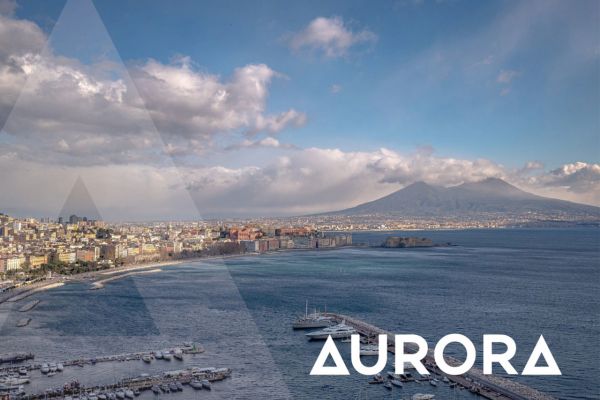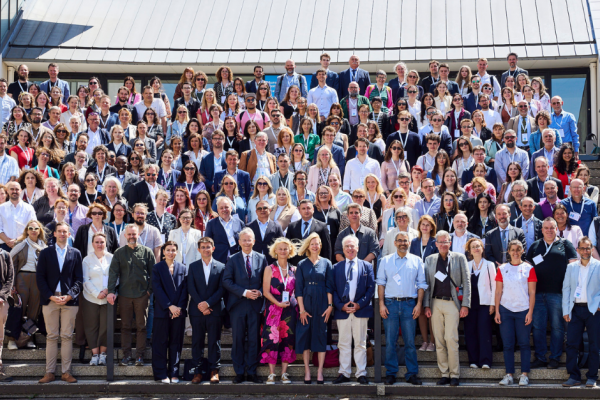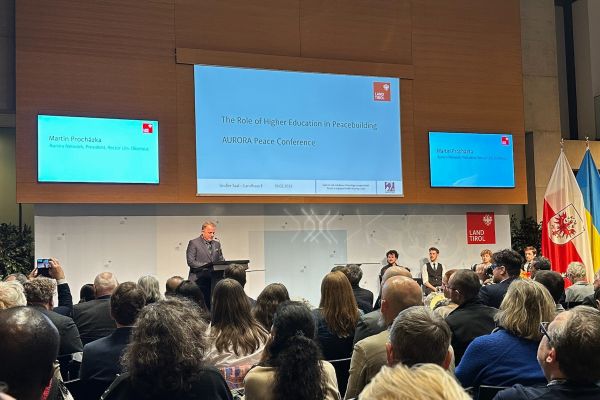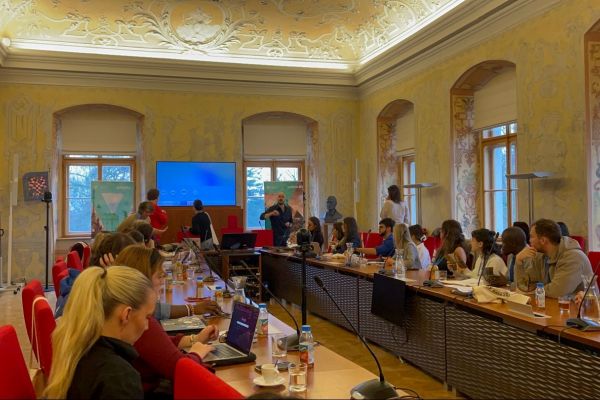On 29 and 30 September 2025, the Aurora international academic conference “DUAL – Dichotomies in Urban Agendas and Logics“, an event promoted within the framework of the European Universities Initiative programme Aurora 2030, will be held at the Department of Humanities of the Università Federico II of Naples (UNINA), Italy.
An activity organised within the Aurora educational hub Cultures: Identities and Diversities, the conference is a continuation of the course Challenges in Europe that took...
Planting the Seeds for the Education of Tomorrow: Looking Back at the Aurora Annual Conference 2025
From May 19 to 22, 2025, the Université Paris-Est Créteil (UPEC) hosted the Aurora Annual Conference 2025, bringing together thought leaders, experts, academics, staff, and students from Aurora universities and beyond. The event fostered dynamic exchanges around education, research and innovation, sustainability, and societal impact.
Aurora Annual Conference 2025 attendees from Aurora universities across Europe © Ciprian Olteanu
The conference began with an opening ceremony at the historic Amphithéâtre...
Science communication course in Amsterdam for PhD and young scientists
In today’s academic world, it’s not enough to “just” publish – researchers need to be visible, heard, and able to communicate in the language of both science and the public. Sign up for a course organized by our partner in the Aurora network – Vrije Universiteit Amsterdam.
We warmly invite you to take part in the Aurora Capacity Building: PhD Academy on Publishing Skills and Science Communication, a Blended Intensive Programme (BIP) that will take place from 6–10 October 2025 at Vrije Universiteit...
International Aurora Peace Conference on the Role of Higher Education in Peacebuilding
From February 17 to 21, Aurora Alliance hosted its first international conference on the vital role of higher education in global peacebuilding. Organised by Karazin University Peace Education Hub, led by Palacky University and Vrije Universiteit Amsterdam, the conference resulted from collaboration with Karazin Kharkiv University, the University of Innsbruck, and the Berghof Foundation, a key player in peace education.
Globally, higher education institutions face challenges from conflicts,...
Back in Olomouc: My Experience As Aurora Student Ambassador
The Aurora Student Conference is a unique occasion for students from Aurora universities to meet in-person and exchange on topics addressing the opportunities and challenges for our students. The 2025 edition took place between 27 and 29 January 2025 at the Palacky University Olomouc (UP) in the Czech Republic. It welcomed 50 Aurora Student Council (ASC) members and Student Ambassadors across Aurora universities on the Olomouc campus. Throwback to the two-day intensive, student-led and student-focused...
Watch online the Aurora International Scientific Conference on The Role of Higher Education in Peacebuilding
The First Aurora International Scientific Conference on “The Role of Higher Education in Peacebuilding” (17–21 February, 2025) braves the current war-mongering times by bringing together 300 scientists researching our prospects for peace all over the globe. On this occasion, Palacký University Rector and Aurora President Martin Procházka held talks with the Rector of the University of Innsbruck, Veronika Sexl, who will take over the leadership of Aurora at the end of his presidential...
UP hosts the Aurora Student Conference 2025
For the next two days, close to 50 Aurora Student Council members and Aurora Student Ambassadors from Aurora universities gather on the campus in Olomouc for an intensive programme focused on:
🔎 Getting to know Aurora from the students’ perspective
🌍 Understanding students’ role in a European university alliance through an open Q&A session with the Aurora Student Council
🎓 Integrating the Aurora Student Ambassadors programme, expectations, challenges and the way forward
📚 Comprehending...
Aurora Peace Conference received over 180 academic paper submissions!
The First Aurora International Scientific Conference on “The Role of Higher Education in Peacebuilding” (17-21 February, 2025) braves the current war-mongering times by bringing together 150 scientists researching our prospects for peace all over the globe.
The conference is organised by Task Team 7.4, ‘Creation of Karazin University Peace Education Hub’, led by Palacky University and Dr. Selma Porobic, to support ongoing Aurora peace-building efforts at Karazin University...
UP organises Aurora BIP on How to increase the Social impact of Teaching by using LOUIS Competencies
UP is organising its first Aurora Blended Intensive Programme entitled How to Increase the Social Impact of Your Teaching: Using the LOUIS Competence Framework to Improve Your Course. This BIP is organised by Maxim Tomoszek at the Faculty of Law with the support of the Aurora education developer, Markéta Šemberová. Maxim Tomoszek leads the Aurora 2030 programme’s LOUIS component.
LOUIS is a tool that supports academic teachers in articulating learning outcomes for general academic and...
International scientific meeting in Innsbruck combines natural sciences and humanities
Under the auspices of the European universities united in the Aurora Alliance, the University of Innsbruck organised a completely unique Erasmus double BIP (Blended Intensive Programme) from 20 to 25 October 2024. More than 40 educators, scientists and administrative staff from Palacký University, the University of Innsbruck, the University of Duisburg-Essen, the Université Paris-Est Créteil, the University of Iceland and, last but not least, the Universitat Rovira i Virgili combined the two areas...












